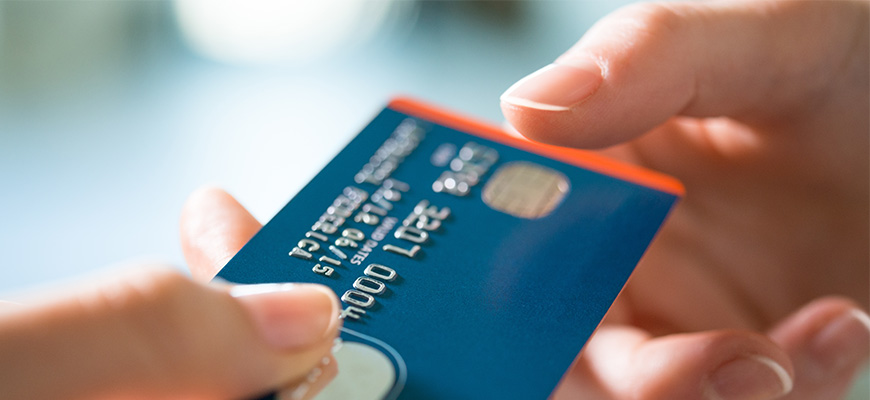For those working to build a strong credit score, a secured credit card can be a great place to start. Secured credit cards are backed by an up-front deposit, enabling borrowers to qualify even if their credit history is poor or non-existent. However, these cards also come with higher interest rates and lack benefits like rewards programs and purchase protection that often come with unsecured credit cards. Unsecured credit cards require a credit check rather than a deposit, and some of them even have minimum income requirements.
If your goal is to build credit, both unsecured and secured credit cards can help as long as you make your payments on-time. Before you move forward, let’s take a look at some of the key differences between unsecured and secured credit cards to help you determine which one is right for you.
What's the Difference Between a Secured and Unsecured Credit Card?
Approval Chances One of the main benefits secured credit cards offer is that your chances of being approved are much higher, even if you have bad credit or no credit history. Secured credit cards usually have no minimum income threshold, and they may not even require a credit check. The fact that you put money down to “secure” the card is enough to guarantee your approval.
When you apply for an unsecured credit card, the lender will run a credit check, and your credit score and credit history will factor into whether they approve your application. Many unsecured credit cards have minimum income thresholds that you must meet to gain approval.
Security Deposit Secured credit cards require that you make a one-time deposit to open an account. The lender will then use this deposit in the event that you fail to pay your bill.
Even though your secured credit card is backed by a deposit, you must still pay your bill each month to keep your account in good standing. Once you prove to your lender that you can reliably pay your monthly bill, they may refund your security deposit and convert your secured card into an unsecured one.
Unsecured credit cards don’t require a deposit, but you will need to demonstrate positive credit history and proof of income to open an account.
Setup Fee & Extra Fees
Many credit cards come with annual fees, but in the case of unsecured cards, the opportunity to earn credit card rewards often offsets these fees. You can find options for both secured and unsecured credit cards that do not charge annual fees if you shop around.
In addition to the security deposit required to open a secured credit, you may need to pay a non-refundable set-up fee when you open the credit card account.
There are myriad other fees associated with both unsecured and secured credit cards, including charges for foreign transactions, late payments, carrying a balance over your credit limit, cash advances, and more. Always read your card agreement carefully so you’re not hit with unexpected charges.
Earn Rewards Secured credit cards are a great way to build credit, but they do not offer access to popular rewards programs that unsecured credit cards are known for.
Unsecured credit cards may offer the opportunity to earn cashback, Airmiles, or points you can put toward travel or other purchases. Some cards even have 0% APR periods on certain purchases. If you can qualify for an unsecured credit card, choosing a card with a rewards program that fits your lifestyle is a nice perk that could save you money over time.
Additional Benefits In addition to rewards programs, unsecured credit cards often offer benefits like travel insurance, rental car insurance, price matching or extended warranties on purchases. Keep these perks in mind as you compare credit cards. Select one that matches your buying habits so you can make the most of these benefits.
Secured credit cards do not usually offer these types of perks.
Interest Rates Because secured credit cards are aimed at borrowers with low credit scores, lenders compensate for the risk they’re taking on by charging more interest. The interest rates for secured cards are the same for everyone, regardless of credit history
Unsecured credit cards typically offer much lower interest rates and your credit score and credit history determine the exact amount you’re charged. Borrowers with good credit will be rewarded with lower interest rates.
Credit Limit Secured cards typically have a lower credit limit than unsecured cards.
When you apply for an unsecured credit card, your credit limit is determined by your income and your credit history. Individuals with low credit scores or limited credit history will be offered lower credit limits than those with high scores. Credit limits for unsecured cards may range from $500 to over $10,000, depending on the borrower’s credit rating. If you open a card with a low limit, you can increase your credit limit over time as you build positive credit history.
Credit limits for secured cards are typically equal to the amount of money you put down as a deposit when opening the account. This is usually between $200 and $2,000, depending on the card. Your lender may increase your credit limit after you’ve established a history of consistent on-time payments.
Credit Check Requirement Because secured credit cards are backed by an upfront deposit, they do not require a credit check to open an account. This makes them a powerful way for anyone with bad credit or no credit history to build credit.
You must undergo a credit check in order to qualify for an unsecured credit card. Your credit limit and interest rate for these accounts will be based on your existing credit history and your annual income.
Credit Score to Qualify Unsecured credit cards are approved based on your creditworthiness in the eyes of lenders. There are all kinds of unsecured credit cards on the market and each has different requirements. There are cards aimed at students, individuals with exceptional credit scores, high-earning individuals, borrowers working to build credit, and more.
If you have a credit score of 660 or higher you should be able to qualify for an unsecured credit card, but you will need a much higher score to qualify for some of the most exclusive credit cards. Often, credit card advertisements will indicate the minimum credit score and annual income required to qualify.
Secured credit cards don’t require a minimum credit score, making them a promising stepping stone for those looking to build credit.
What is a Secured Card and How Does it Work?
Secured credit cards require a one-time deposit when you open an account. This deposit acts a as a guarantee for the lender in the event that you fail to make your monthly payments. Because these cards are backed by your own money, they are easier to qualify for than unsecured credit cards.
However, they also typically charge higher interest rates and lack many of the perks, such as rewards programs, zero-interest grace periods and purchase protection, that often come with unsecured credit cards.
A secured credit card is a fantastic way to build (or rebuild) credit if you are unable to qualify for an unsecured credit card. After establishing yourself as a reliable borrower, you will be able to qualify for additional credit products and upgrade to an unsecured credit card with a more favourable interest rate.
Who is a Secured Credit Card Good For?
Since they don’t require credit checks or a minimum income, secured credit cards are powerful tools for those with bad credit or nonexistent credit history. As such, a secured credit card can be very useful for new immigrants who need to build credit in Canada from scratch. They are also a good tool for young Canadians who want to start building a credit score and generate a credit report to help them reach early financial goals (like renting an apartment or getting a car loan).
They are easy to open and can help you build a positive credit history relatively quickly.
How Do Secured Credit Cards Help Your Credit?
Secured credit cards help you build credit in the same way an unsecured credit account would. Even though they are low-risk for the lender (because you back them with an upfront deposit), your payment history and account data is still reported to the credit bureaus.
As a result, your secured credit account will appear on your credit report and with it, your balance, payment history, and account age will all factor into your overall credit score.
Maintaining a low credit utilization ratio (under 30% is ideal), and making your payments on-time will help you build your credit score over time.
How to Choose the Right Card for Me?
If you’re looking to build or rebuild credit, a secured credit card could be a good way to get started. These accounts are easy to qualify for and open, but they do require a cash deposit upfront and they charge high interest rates compared to unsecured credit cards.
For those who can qualify, unsecured credit cards typically offer more competitive interest rates as well as additional perks such as rewards programs, cash-back, or 0% interest grace periods, that you can’t access with a secured credit card. However, you will have to undergo a credit check and demonstrate some positive credit history to be approved for these cards.
Always consider the big picture when you’re shopping around for a credit card. The interest rate, annual fee, minimum credit score and income requirements, and associated perks should all factor into your decision. Remember, any credit card can help you build your credit, so always be sure to make your payments on time.















